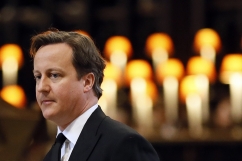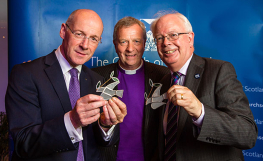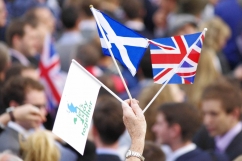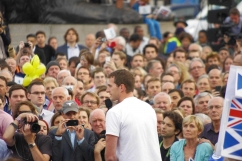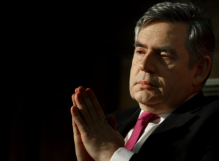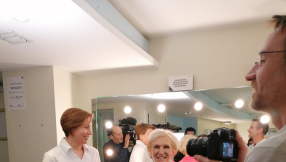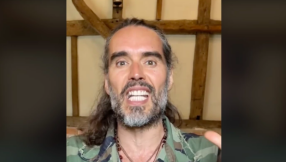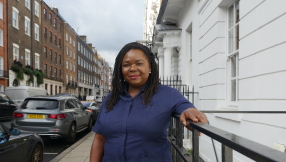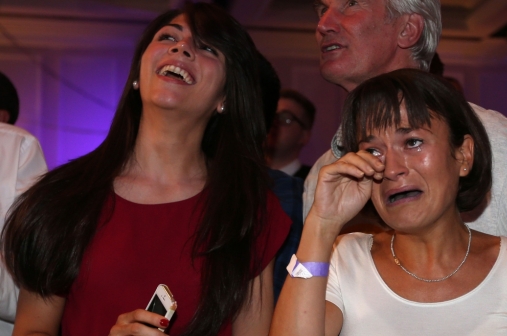
There has been a lot of talk about reconciliation. The country I live in is apparently bitterly divided and we need politicians and preachers to come and unite us. Last Sunday in Edinburgh there was a 'service of reconciliation' held in St Giles Cathedral, 'for the whole nation'. This was repeated throughout many churches in Scotland. Political leaders from both sides of the debate lit a candle and sang from the same hymn sheet. The political representation included Scottish finance secretary John Swinney, Better Together leader Alistair Darling, Scottish secretary Alistair Carmichael and Liberal Democrat chief secretary to the treasury Danny Alexander.
The moderator of the Church of Scotland, Rev John Chalmers gave a well thought out and appropriate political sermon in which, among other things, he spoke of healing coming through unity and the "shared values" and "common purpose" of Scotland. He said that now was a "time to unite, a time to walk together".
"How we voted on one particular day does not define who we are. How we work together to put in place the democratic will of the Scottish people will be defining – both for us as individuals and for us we as we work to redefine our place within the United Kingdom."
The media lapped it up. The politicians took the photo opportunity. And many Christians thought it was a wonderful thing to do. After all, is the Church not in the reconciling business? Have we not been given the ministry of reconciliation according to the passage cited by the moderator – 2 Corinthians 5?
Well, I'm sorry to burst the bubble but actually I think it was both a waste of time and, to be honest, a bit of a sham. But before you choke on your tea, please at least allow me to explain by asking three questions:
1. Who needed to be reconciled?
Yes, we have lived through a very passionate debate but as one wag tweeted, "No-one was killed, no-one was imprisoned and only one egg was thrown, well done Scotland". Scotland 2014 was not Gaza, Ukraine or South Africa. We don't really need a reconciliation commission. I went to work the following day, I spoke to my friends on both sides, I worshipped with people of different opinions on the Lord's day in my church, and there was no trouble.
Indeed, given the profound disappointment and sadness felt by many people (and relief and joy felt by others) it is astonishing, that apart from a few 'Unionist' thugs (largely far-right football supporters) trying to start a riot in Glasgow, there was virtually no trouble at all. Of course there was the usual social media emotive nonsense, and doubtless a few middle-class dinner parties were a wee bit disrupted, but this was hardly the Scottish Civil War. So why did we need a service of reconciliation?
2. Who is going to do the reconciling?
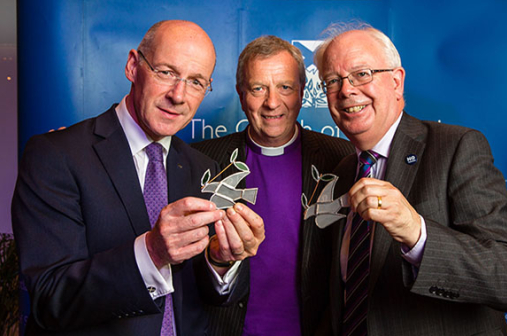
The idea of course was that the Church of Scotland was putting itself forward as the National Established Church. The problem is that this is an illusion and ritual from the past. Less than two per cent of the Scottish population actually attend the Church of Scotland, which seems to be in meltdown, having lost 29 per cent of its membership in the last decade. Besides which, astute observers will ask if Church of Scotland needs to take the caber out of its own eye before it takes the matchstick out of others. As I write there is one major congregation about to worship in its own building for the last time this weekend, because the Kirk is forcing them to leave.
But, more importantly, the kind of 'reconciliation' being posited is papering over the real cracks in society. This is more about politicians' games and media manipulation than any attempt to deal with the real problems in our society. It enabled politicians to say look we are 'better together' and it allowed the Church to feel significant.
I found it all more than a little patronising and fake. And I'm not sure I do want to be reconciled to the poverty, injustice, sexual abuse and the growing gaps between the rich and powerful and the poor and powerless. I want to scream at the darkness, not pretend everything is sweetness and light. But even though there is a deeper reconciliation in society needed, there is something even more basic than that.
3. What reconciliation do we really need?
The service and sermon at the event was a shallow caricature of what biblical reconciliation is. The passage in 1 Corinthians is there to tell us that the Church does have a ministry of reconciliation – but it is not primarily to bring squabbling communities together. It is to reconcile human beings to God. The biggest problem in our culture is not that we argue about political systems, nor even that we are alienated from one another; it is that we are alienated from God. What causes that alienation? Sin.
Can you imagine the consternation if the moderator had told the assembled politicians that they were sinners who needed first of all to be reconciled to God?! And that they could not be reconciled unless they were 'in Christ' – the Son of God who came and died for our sins?! I suspect that would have been the last such service! But isn't that what a prophet – and a prophetic Church – is supposed to do? Challenge those in power, not confirm them in their self-importance. We are called to preach the good news to the poor, not indulge the illusions of the rich.
So let's return to the key questions:
Who needs to be reconciled? We do. We need to be reconciled to God – it is only as our relationship with him is restored and 'the dividing wall of partition' is broken down that we can have our relationships with other human beings restored.
Who does the reconciling? He does. God was in Christ reconciling the world to himself, not counting men's sins against them. Apart from the cross there is no reconciliation.
What is reconciliation? It is that we are now able to define ourselves not by our nationality, tribe, community, status, wealth, family, sexuality, but as a new creation. We are 'in Christ'. It is only from that we can have 'shared values' and a 'common purpose'. There is ultimately no unity except in Christ.
God's new community is salt and light in a dark and tasteless world. We are not those who speak of the shared values of the powerful elites, who say 'peace, peace when there is no peace'. We are those who point to Christ, the light of the world and who ourselves live by that light. Reconciliation will only come through reformation, renewal and revival!
"For if while we were God's enemies, we were reconciled to him through the death of his Son, how much more, having been reconciled, shall we be saved through his life! Not only is this so, but we also boast in God through our Lord Jesus Christ, through whom we have now received reconciliation." (Romans 5:10-11 NIV)
David Robertson leads St Peter's Dundee and is the director of Solas CPC.












